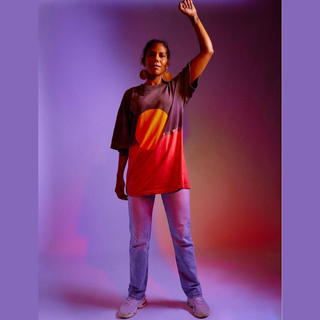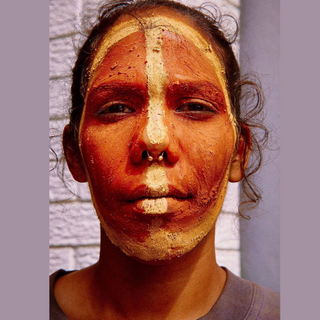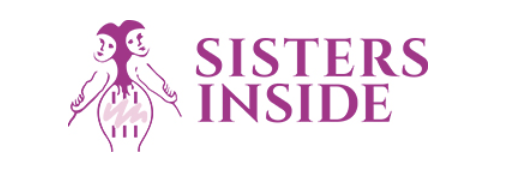What moment did you know the work you do was what you needed to do for other women and girls?
Sexist and racially charged criminalisation driven by police and prisons has been an ongoing tactic of colonisation in this country since 1788. I’ve known the danger of policing and prisons since a young age and believe that we must stop the carceral machine that continues to target vulnerable people, in particular young women and girls. We must resource communities to combat criminalisation and re-imagine our communities without bars, without handcuffs.
Does any one particular woman or girls’ story keep you going in the fight for change?
There have been many, the most recent in my life being Debbie Kilroy. She will always be the first person. She reminds me daily of the importance of stopping the violence that prisons and policing brings. Sisters Inside has created a space for incarcerated and criminalised women and girls to have a valuable position in our society. Sisters Inside commands attention as it represents the power of our communities’ most marginalised people.
When I was 11 years old my Aunty Hazle Wharton died in the Richlands watchhouse. She was my father’s baby sister, the youngest of 10, a mother to a son and daughter; if she were alive today she would be showing the world all the love a proud grandmother could give. Aunty Hazle was my favourite aunty, she was so loving, supportive, fun and wild – I miss her and wish she could be here to experience all of the blak joy that has come into our family.
My Aunty Hazle was birthed by my favourite Grandparent, my Nanna Beryl Wharton. She set the expectation in our family that we must fight for freedom, truth and justice, showed us how to do it and taught us how to strive through adversity with grace. I owe these two women for reminding me why we must end the carceral and colonial violence that First Nations people endure.
Why do all women need to unite in the fight to free women and girls from violence?
All women need to unite to stop the targeted carceral violence experienced by women and girls – and everyone else – as this is a vital aspect of our society that often is overlooked. Women and girls experience a great deal of violence within the prison and policing system, many of them often have children that experience it too. All women must amplify the voices of incarcerated and criminalised women and girls to ensure our daughters, our nieces, our granddaughters and daughters to come after them do not experience the violent barriers that prisons and police build. We must raise proud young women, who remember our part in this time; we must be a part of making history; we must be proud to contribute to ending systemic gendered and racialised violence.
Why on International Women’s Day do we need to really look at how so many women and girls are behind bars today in Australia?
We must focus on this cause every day due to its progressive attacks on our communities most disempowered. Women and girls are locked up in watchhouses and incarcerated in prison daily. This is an urgent issue that requires constant attention. We must be concerned that women and girls are the fastest growing population of incarcerated people; we must be concerned that the family policing system is able to further breakdown families; we should be concerned that children are being treated so violently. As women, we must be passionate about building our communities, care for our communities and contribute to them where women and girls can eat the fruit of our labour – that includes women and girls behind bars, in fact it puts them at the head of the table.


How can you help?
The Sisters Inside Fund for Children supports children of women in the criminal justice system to choose their own future free of the burdens so commonly felt while their mother is in prison.
#Free Her Campaign
This campaign has been set up by Debbie Kilroy, CEO of Sisters Inside Inc. The funds raised will be used to release people from prison and pay warrants so they are not imprisoned.

